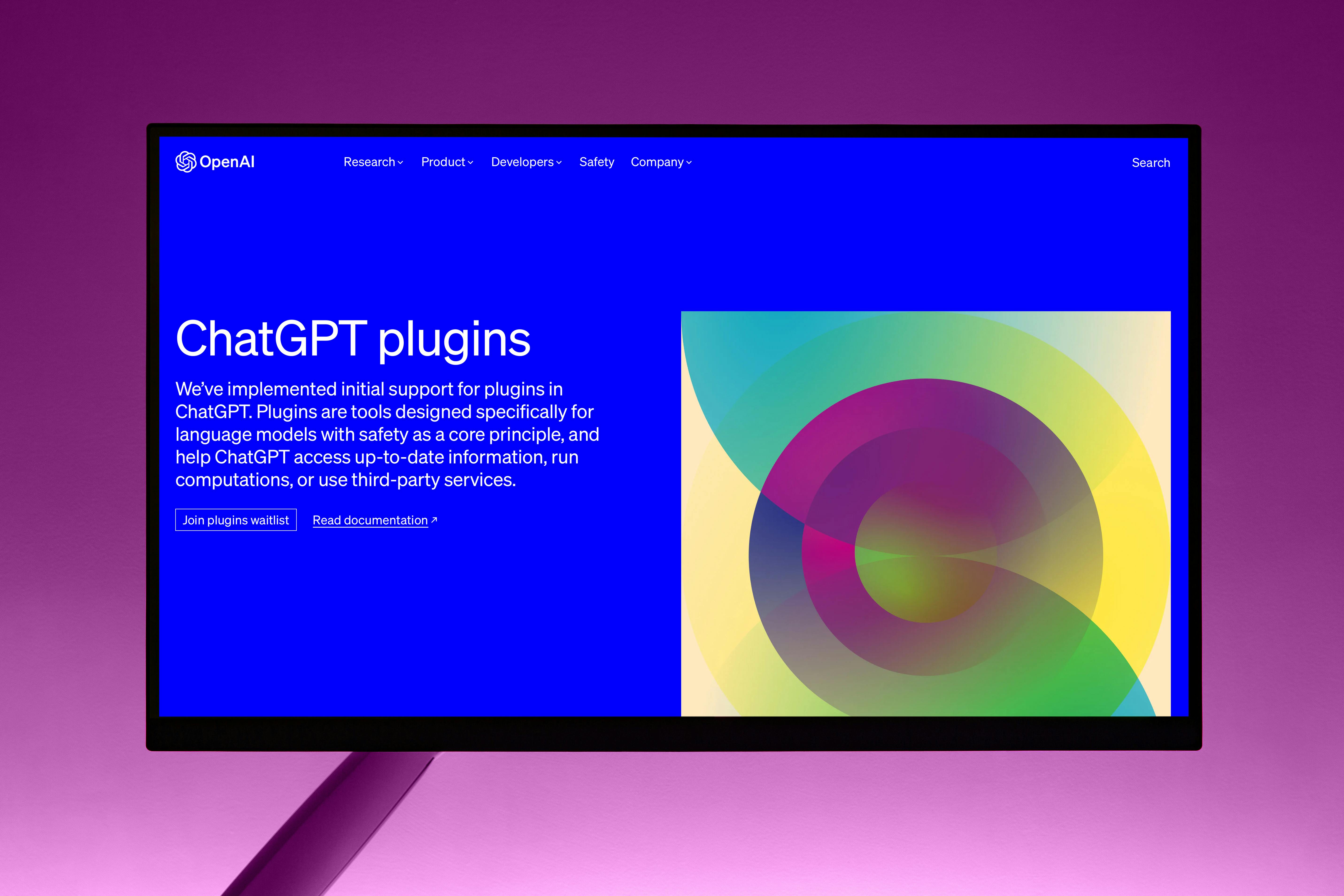Unlocking Success at OpenAI: The Power of Building from Scratch and Cultivating Curiosity

Defining Success in the Frontier of Artificial Intelligence
In the rapidly evolving landscape of artificial intelligence, openai stands as a beacon of innovation. To truly thrive within this dynamic environment, individuals need a unique and critical trait: the ability to build and innovate “from scratch.” As highlighted by Nick Turley, the head of ChatGPT, this capacity for original thought and execution is paramount in an industry that constantly pushes the boundaries of what’s possible. It’s about forging entirely new paths, not just improving upon existing frameworks.
The Imperative of Starting Anew
Turley emphasizes that in the realm of artificial intelligence, especially with groundbreaking projects like chatgpt, there’s no established playbook to follow. Unlike industries where companies can iterate on products or features pioneered by giants like Google or Meta, OpenAI operates in uncharted territory. This means every challenge, feature, and product iteration must be approached with a fresh perspective, as if for the very first time. This isn’t merely a preference; it’s a fundamental requirement for success within the organization.
Identifying and Cultivating Foundational Abilities
OpenAI actively seeks and tests for this crucial ability in prospective hires. It’s a quality that distinguishes candidates who can not only grasp complex AI concepts but also translate them into tangible, innovative solutions without relying on pre-existing blueprints. This focus on foundational capability ensures new team members are equipped to contribute meaningfully to OpenAI’s mission of advancing artificial intelligence for the benefit of all humanity.
Key Attributes Beyond Technical Prowess
The Foundation of a Successful Career at OpenAI
While a strong technical background, experience at leading technology firms, and a deep passion for AI research are valuable prerequisites for securing a position at OpenAI, they aren’t the sole determinants of long-term success. The ability to navigate ambiguity and construct solutions from the ground up is what truly sets individuals apart once they are within the organization. This distinction between getting hired and truly thriving is a crucial one.
Curiosity as the Primary Driver
Nick Turley identifies curiosity as the foremost quality he seeks in new hires. This innate desire to explore, question, and understand is fundamental in a field characterized by constant evolution and discovery. Curiosity fuels the drive to delve into the unknown, experiment, and learn—all essential for pushing the frontiers of AI. It’s the spark that ignites innovation and the engine that keeps progress moving forward.
Agency and Adaptability: Navigating the Unforeseen. Find out more about Business Insider.
Beyond curiosity, OpenAI’s leadership places significant value on agency and adaptability. Agency refers to an individual’s proactive approach to taking initiative and driving projects forward, even without explicit direction. Adaptability is the capacity to adjust to new information, changing circumstances, and unexpected challenges. In the rapidly shifting landscape of AI development, these traits are indispensable for navigating inherent uncertainties and seizing emerging opportunities.
The “Ship Fast and Learn” Philosophy
Strategic Release of AI Innovations
OpenAI employs a distinctive strategy when releasing its products and features, often characterized by the principle of “ship fast and learn.” This approach involves launching products and updates even when they aren’t fully polished or perfected. The rationale is to gather invaluable real-world feedback from users as quickly as possible, thereby accelerating the learning and iteration process.
Learning from User Interaction
Turley acknowledges that this method can draw criticism, citing the past implementation of a model chooser in ChatGPT that was later discontinued. However, his core thesis is that it’s more advantageous to release something “raw” and less “sensible” initially if it means gaining immediate insights from actual user interactions. This direct feedback loop is critical for understanding user needs, identifying areas for improvement, and refining AI models in a way that aligns with practical application.
The Advantage of Early Deployment
This philosophy contrasts with approaches where cutting-edge tools are reserved for a select group of internal researchers for extended periods. By making its advancements accessible to a broader audience sooner, OpenAI leverages the collective intelligence of its user base to enhance its products more effectively and efficiently. This democratized approach to learning and development is a hallmark of OpenAI’s innovative culture.
OpenAI’s Unique Organizational Culture
Fostering Humility and Shared Purpose
A notable aspect of OpenAI’s culture is the pervasive sense of humility across all levels of the organization. This is partly reflected in the common job title, “Member of the technical staff,” applied even to individuals who might hold senior leadership roles elsewhere. This practice de-emphasizes hierarchical distinctions, keeping the focus squarely on the collective mission and the work itself, rather than personal advancement through titles.
Integrating Research and Product Development
At OpenAI, research and product development are deliberately integrated. Unlike many organizations where researchers operate in isolation, OpenAI’s product teams are structured as “DERP” units, encompassing Design, Engineering, Research, and Product. This close collaboration ensures researchers are embedded within product teams, actively contributing to model improvement and prototype creation. Features like the code interpreter and browsing capabilities originated as research prototypes, underscoring the efficacy of this integrated approach.
The Power of Small, Agile Teams
The company often structures new projects to operate like independent startups, emphasizing agility, pace, and autonomy. This approach fosters a rapid iteration cycle aimed at achieving product-market fit. The ChatGPT team’s initial setup, for instance, involved co-locating team members and rearranging workspaces to maximize collaboration and efficiency. This focus on small, integrated teams allows for remarkable output with a lean workforce, enabling the company to move with speed and precision.
The Significance of Senior Talent and Experience
A High Bar for Recruitment
OpenAI maintains a rigorously high hiring bar, with a particular emphasis on attracting senior talent. The company recognizes that assembling a team of highly experienced individuals is crucial for achieving its ambitious goals. A review of employee profiles on professional networking platforms often reveals that most individuals possess over a decade of experience in their respective fields, with many having prior experience as founders themselves.
The Impact of Seasoned Professionals
The presence of seasoned professionals within small, integrated teams creates a potent combination for rapid and effective development. These individuals bring a wealth of knowledge, a proven track record of problem-solving, and a deep understanding of complex technical challenges. Their collective expertise enables OpenAI to tackle multifaceted problems and innovate at an accelerated pace, driving the company’s progress in the AI landscape.
Learning from Diverse Expertise
The concentration of top-tier talent at OpenAI ensures that employees are constantly learning from colleagues at the absolute pinnacle of their professional capabilities. This environment of shared expertise and continuous learning fosters a culture of excellence and accelerates the professional growth of every team member. It’s an ecosystem where innovation thrives on the collective wisdom and experience of its people.
Navigating the Evolving Landscape of AI Development
The Absence of Precedent
The core challenge in developing advanced AI systems like ChatGPT lies in the fact that there are no established precedents or analogies to draw upon. Unlike developing a new social media platform or productivity tool, where existing models and user behaviors provide a framework, AI development often involves creating entirely new paradigms. This necessitates a mindset comfortable with ambiguity and adept at generating solutions in the absence of clear guidance.
The Importance of Foundational Skills
This is why the ability to approach each scenario “from scratch” is so critical. It requires individuals to leverage fundamental principles, critical thinking, and creative problem-solving skills to construct novel solutions. It’s about understanding the underlying mechanics and building upon them innovatively, rather than relying on existing templates or best practices that may not be applicable.
Adapting to Continuous Change
The field of AI is characterized by relentless and rapid change. New research, algorithms, and capabilities emerge constantly, requiring individuals to be highly adaptable and open to continuous learning. The ability to pivot, unlearn and relearn, and integrate new knowledge into existing frameworks is essential for staying relevant and contributing effectively to the advancement of AI.
The Role of Transparency and Culture in Sustained Success
Building Trust Through Openness
OpenAI’s journey has underscored the critical role of organizational transparency in building and maintaining trust, both internally and externally. While the company has faced scrutiny regarding its shift towards more commercial operations, a commitment to openness about its goals, challenges, and even failures is vital for fostering a positive reputation and inspiring confidence within the AI community and the broader public.
Aligning Culture with Mission. Find out more about understand shares.
The impact of leadership on company culture is profound, as demonstrated by the strong employee reaction during periods of organizational flux. A culture deeply aligned with the company’s mission and values, particularly in ethical AI development, fosters a sense of belonging and purpose among employees. This alignment transforms employees from mere contributors into fervent advocates of the organization’s vision.
People-Centricity as a Cornerstone
Ultimately, the success of any organization, especially one at the forefront of technological innovation, rests on its people. A culture that prioritizes people orientation—valuing employees as individuals, fostering respect, and ensuring they feel heard and empowered—creates fertile ground for innovation, loyalty, and shared purpose. This human-centric approach is not just beneficial; it is essential for navigating the complexities of the AI era and achieving enduring success.
Future Implications for AI Development and Business Strategy
The Evolving Nature of AI Leadership
The insights from OpenAI’s leadership and its approach to talent highlight a significant shift in what constitutes effective leadership in the AI domain. The emphasis is moving beyond purely technical expertise to encompass traits like curiosity, adaptability, and the ability to foster an innovative culture. Leaders must be adept at navigating ambiguity and empowering their teams to create novel solutions.
Strategic Integration of AI in Business
For businesses looking to leverage AI, the OpenAI model offers valuable lessons. Success isn’t solely dependent on adopting the latest AI technology; rather, it hinges on how effectively leadership manages AI integration into existing operations and how well the organizational culture supports this transformation. A people-centric approach to AI adoption, ensuring employees are involved and informed, is crucial for widespread acceptance and success.
The Ethical Imperative in AI Advancement
As AI continues to advance at an unprecedented pace, the ethical considerations surrounding its development and deployment become increasingly critical. OpenAI’s commitment to responsible AI development, coupled with the need for transparency and robust governance, sets a standard for the industry. Businesses and researchers alike must prioritize ethical frameworks to ensure AI is developed and used for the benefit of humanity, mitigating potential risks and fostering a future where AI and society thrive in harmony.
